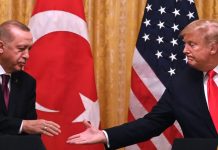India may consider joining other nations in declining the US’ request to ban Chinese network equipment maker Huawei from 5G network deployments. Many nations have argued that security risks can be managed by closely scrutinising Huawei and its software.
Islamabad Blames India For Spreading Baseless Reports On Chinese Military Base in Pakistan
Eventhough there is a recognition of security issues in using the Chinese-manufactured mobile telephony, Indian government officials have cited the examples of the United Kingdom and Germany in their decision to also reject Washington’s demand, Indian daily The Economic Times reported on Tuesday.
New Delhi is apparently of the view that every country has the right to make its own assessment and prepare its commercial strategy accordingly.
Huawei is confident that it will be able to measure up to the prescribed criteria for participation in the 5G trials. It also admits that it expects a decision to be made only after the general elections in India conclude, the daily reported.
Stakeholders are currently awaiting an allotment of the 5G trial spectrum from the Indian government. Huawei is competing mainly with European vendors Nokia and Ericsson, besides Chinese rival ZTE, for the global telecom gear contracts.
Huawei has said that it intends to fully comply with India’s cybersecurity laws. “Our equipment is compliant to international standards and tests and we are ready to comply with any government regulations and tests in India”, a senior Huawei India official told the Indian daily.
Over the past several months, the US has been trying to pressure other nations not to use fifth-generation, or 5G, wireless networks of Huawei. The warnings stem from Washington’s concerns that Huawei and other Chinese telecom companies are a significant security threat, given Beijing’s control over the mobile telephony industry, The New York Times reported.
Trump administration officials have reportedly pointed out that new Chinese security laws require Huawei and other companies to provide information to intelligence officials. This, they say, could allow China access to vast amounts of data and even let Beijing spy on companies, individuals, and governments. Huawei officials, however, have rejected this premise.
The US is now looking at other ways to curb Huawei’s expansion globally by possibly restricting American companies from supplying the latter with key components that it may need to build 5G networks across the world, The New York Times reported.




